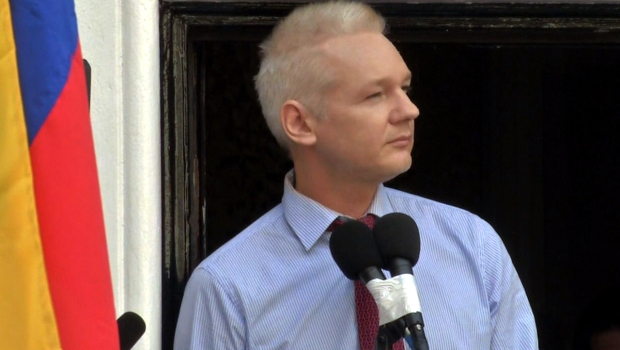How long ago WikiLeaks seems. Yet for Bradley Manning and Julian Assange, the whole world is defined by the scandal. While the materials released were not of particular consequence, often merely confirming well-read suspicions, the culture of secrecy that they represented continues to assert itself. In this area, there is precious little distinction between the mainstream US political parties.
Manning has been confined in appalling circumstances, treated like a Nazi war criminal, rather than a person whose principles came into dramatic conflict with what he was being asked to do. As the military expanded its intelligence network as a key part of counterinsurgency, it was taken for granted that any person allowed to see what there is to see, and not told to move on, would do so gratefully. Never mind that, according to Manning, most spent their time downloading music and movies onto blank DVDs. He himself smuggled out his documents on DVDs labelled “Lady Gaga” so as not to arouse suspicion.
Assange has likewise been hounded in palpably absurd ways, whatever you think of him personally. Who else would Britain agree to extradite merely for questioning by prosecutors in what seems like a suspiciously convenient case? Of course, I am not condoning sexual harassment and, if this does prove to be a case encouraged by the authorities, it was a clever choice, knowing that progressive people would be torn between the two issues.
Here in Australia, Assange’s case is very much understood as one of civil liberties, both in the US and in Australia, where the Labor government has carefully followed the American line. Here’s the Sydney Morning Herald:
We now have an American president who continues with indefinite detention outside the protection of the US constitution, who orders the killing of US citizens, who allows pre-trial punishment of Manning, and who continues to keep American officials immune from prosecution in the International Criminal Court for war crimes. With Assange, we now have a democratic government in the American hemisphere granting asylum to someone on the basis of well-grounded fear of political persecution in the United States.
A while ago, only my Occupy friends were posting material like that, now it’s mainstream opinion.
One more irony has yet gone unnoticed. The purported scandal of WikiLeaks in the first place was in part its flaunting of diplomatic protocol, as cables from diplomats were a major part of the leaked material. All kinds of huffing about the damage to diplomacy followed. Now the British government threatens to snatch Assange from the Ecuadorean embassy in London. I wonder how Anglophone diplomats in some of the world’s less secure locations feel about that? Not to mention that, as any reader of John Le Carré knows, half the so-called diplomats are spies anyway.
So it’s clear that what’s at stake here is not what happens to poor Bradley Manning or the career of Julian Assange. What matters to the Anglophone governments working in synch over this matter is preserving their right to act in secret, to continue to tell us not to concern ourselves with what they do, and to punish any effort to breach that divide. Here, finally, is something the political class can agree on: that they think they’re better than us.


Pingback: On Legitimation | Occupy 2012
Nick – It wasn’t sexual harassment, it was rape. Plus this sentence: “and, if this does prove to be a case encouraged by the authorities, it was a clever choice, knowing that progressive people would be torn between the two issues” is (with respect) about the worst avoidance of an issue. I’m still waiting for a man who supports Assange to take on the rape issue seriously. (The only one I’ve seen presented the argument that when the Swedes say ‘rape’ they don’t really mean rape – which is a weird echo of the old adage that when a woman says no, she means yes.) My comment is fueled by yet more dismissal of rape from the republicans – the latest one being Rep. Todd Akin yesterday explaining his opposition to abortion even in cases of rape. He said that victims of “legitimate rape” don’t get pregnant because “the female body has ways to try to shut that whole thing down.” I’m not confusing my anger at that with my frustration at the poo-pooing of the rape issue in the case of Assange. But why is this not being taken on? This is an important question. You don’t have to deny coercion of Sweden by the US in order to ask it. (Another echo is with the DSK case – he was a socialist, therefore couldn’t be guilty of rape, it was a ‘convenient’ case to discredit him politically, seemed to be the underlying sentiment from men on the left.)
As Luce Irigaray says, democracy begins between two.
The media on this in Australia talk about sexual harassment charges. If the charge is rape that is different, certainly. It’s still striking to see extradition for questioning but on the more serious charge that is perhaps understandable. I don’t think the conflation with the Republicans is quite fair.